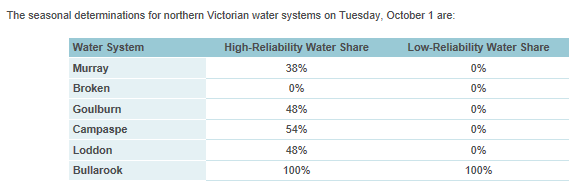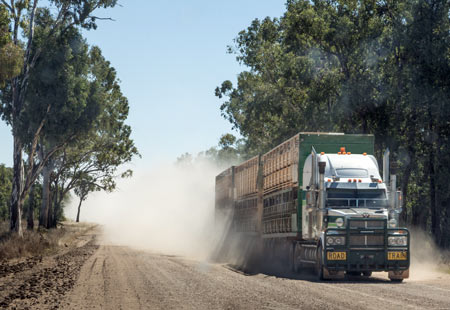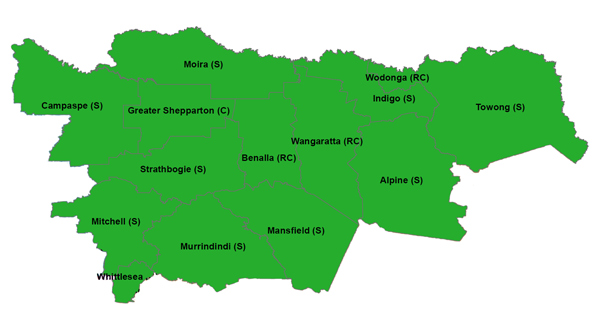
Regional Round-up is a monthly newsletter providing an overview into the environmental and business conditions affecting farmers and rural businesses in the Goulburn Valley and North East Victoria.
Dairy
The milk processors are providing strong prices to suppliers. Despite this, dairy farmers are still looking to exit the industry. Input costs such as water and fodder are the main factors driving these decisions, coupled with remaining uncertainty of how dry the next 12 months will be.RFCs continue to report that the cost and availability of irrigation water is of great concern to many clients.
RFCs have reported that a number of dairy farmers are seeking standing crops for hay/silage to secure as feed for the coming months. Dairy farmers are starting to shift feeding systems as fodder pricing is softening. Increasing expenses are impacting profitability and herds are still being culled as a result of this. To put it another way, clients are forever hopeful for something to alter their current situation.
Despite the challenging conditions there remains a cohort of dairy farmers forecasting a profit for the current year, however they too are not without their concerns. In particular, many have expressed a need from government to clarify its position on dairy so those developing their dairy farm can invest with greater confidence.
Cropping
Low subsurface moisture levels, minimal rainfall and hotter weather has led to many crops not filling out. Farmers are making decisions as to whether to cut crops for hay as warmer dryer conditions continue to hinder the chances of some crops potentially making grain. A number of unirrigated crops have already been cut for hay or silage however, with healthy yields this will remain a profitable option. Croppers with the option to irrigate have been assessing the viability to water cereal crops and harvest for grain.Some crops in the west of our region will continue on for grain, but will unlikely yield highly in quantity or quality.
Crops in southern regions are looking very good with substantial biomass, however yields will be dependent on the severity of the frosts they have experienced in recent weeks.
In the north east region there is considerable variation in soil moisture which has created a mosaic pattern of growth for both pasture and crops. There is still the potential for additional pasture growth across much the higher rainfall areas at this stage especially in the areas that received the timely events over the last 2 months. However, significant areas of crop and pasture have already been cut for silage (both wrapped bales and bulk silage).
Sheep
Lamb and wool producers continue to enjoy good prices for both wool and meat. There had been an easing of prices earlier in the season, however prices have again increased.Variability in the wool market is creating some uncertainty as stock piles in China have increased significantly over last 12 months. The prices have increased on July-August and firmed. National EMI: 1609 c/kg @ 26/9/19
Beef
The spring conditions in the hill country and valleys have pastures looking very good.The meat price is holding and Rabobank predicts prices will not strengthen with sparse rainfall.
Horticulture
With temporary water rising to around $800/ML on the Murray system horticulturists reliant on temporary water will find achieving profitability more challenging this season.Irrigation
There is a lack of stored water on farm across areas north and west of the Hume.There has been very limited runoff for the entire season, with many dams still not full.
The Weighted Average Price for allocation water traded in the Goulburn for the month of September is $565 ($305 for the same period last year) with 14,036 ML traded (70,744 ML for the same period last year).
There is low demand for temporary water as current prices make it more affordable to purchase fodder rather than irrigate crops.
GMW: Flows into the major storages have been steadily declining but were enough to provide an improvement in the volume of water available to allocate to seasonal determinations.

Source: https://nvrm.net.au/seasonal-determinations/current











